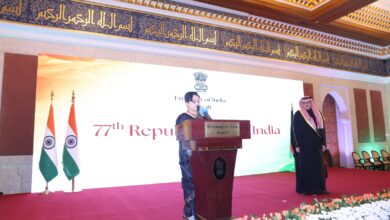Kuwait assigns seven teams for Ramadan fundraising oversight
Collection is allowed at the headquarters of charitable organizations or designated trucks stationed in front of their premises. Fundraising elsewhere or in public places is illegal.

-
While 30 charitable organizations are participating in the fundraising project during Ramadan, monitoring and follow-up are conducted electronically, with violations being entered directly through the charitable work website
Bushra Shaaban, Assistant Undersecretary for the Social Development Sector in the Ministry of Affairs, along with Dr. Khaled Al-Ajmi, revealed that 30 charitable organizations are participating in the fundraising project during the month of Ramadan.
Concerning the approved mechanisms, Al-Ajmi explained that donations are collected through electronic collection devices (K-Net and L-Net) within the headquarters of charitable organizations and via bank deductions. He noted the presence of seven teams across all governorates, along with a social media monitoring team, tasked with overseeing the fundraising process.
He also highlighted the existence of special forms for Iftar meals for fasting individuals and food basket projects, which are completed on the charitable work website. These forms specify the day and location of the Iftar event or the distribution of food baskets. Immediate approval will be granted by the competent administration, the Department of Charitable Societies and Charities.
Al-Ajmi emphasized that monitoring and follow-up are conducted electronically, with violations being entered directly through the charitable work website. This process is facilitated through a dedicated “application” on the website.
Regarding the outcome of charitable work, Al-Ajmi indicated that the association must submit weekly reports on its progress. The teams submit any notes or observations directly via the “application,” highlighting any concerns to the participating associations. Failure to comply exposes the association to work suspension.
Additionally, by the end of the month, the ministry will publish a preliminary report on the fundraising project for the holy month.
Al-Ajmi anticipated that due to the workload pressure on charitable societies during the month of giving, some societies might experience slight delays in preparing the final report.
He emphasized that collecting in-kind or cash donations through private kiosks constitutes a clear violation of the Charitable Work Law. Regarding the collection of clothes and in-kind materials, he stated that, according to the decision of the Council of Ministers, collection is permitted within the headquarters of charitable organizations or in specific trucks stationed in front of their premises. Any fundraising activities conducted outside these designated areas or in public places are considered legal violations.






















